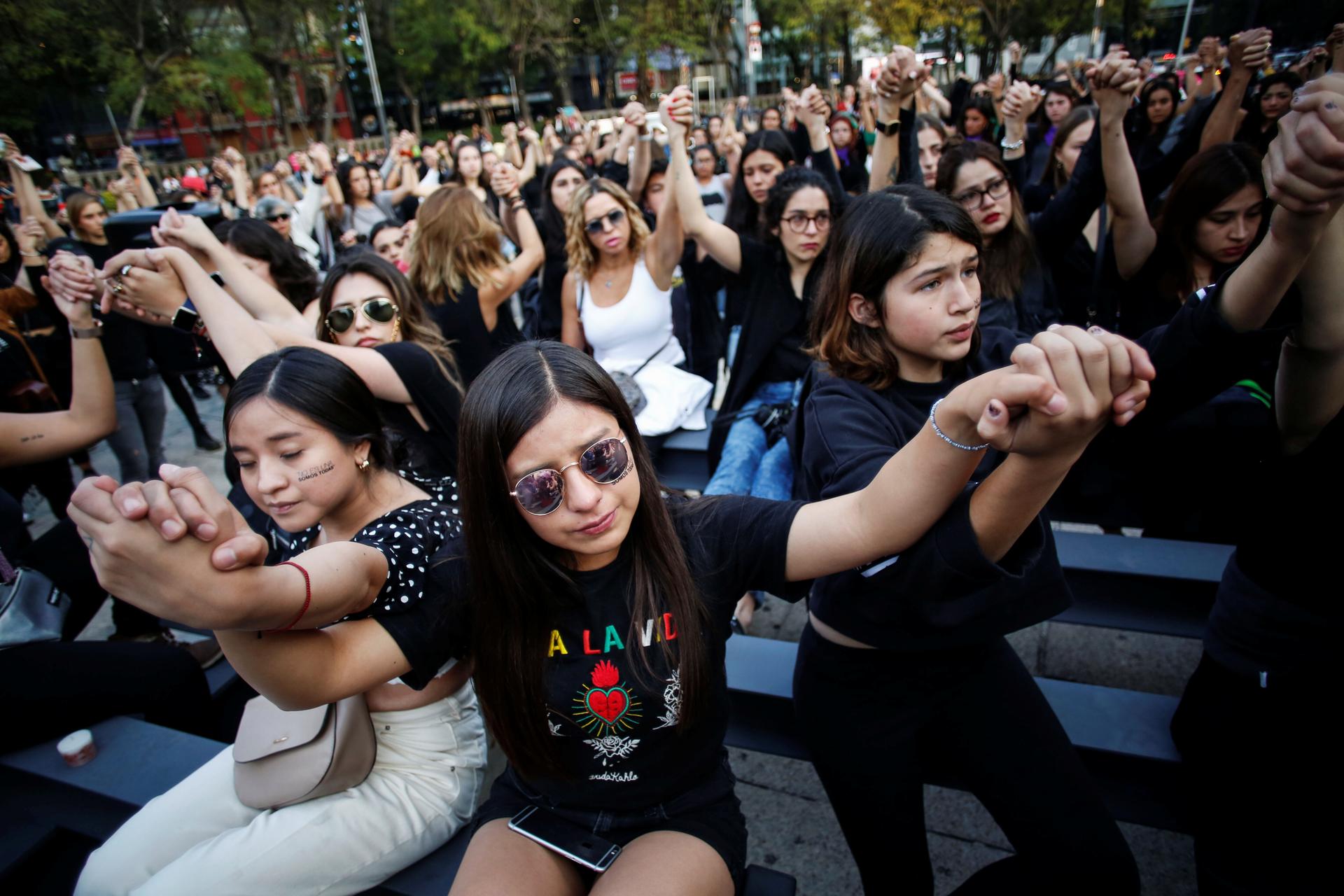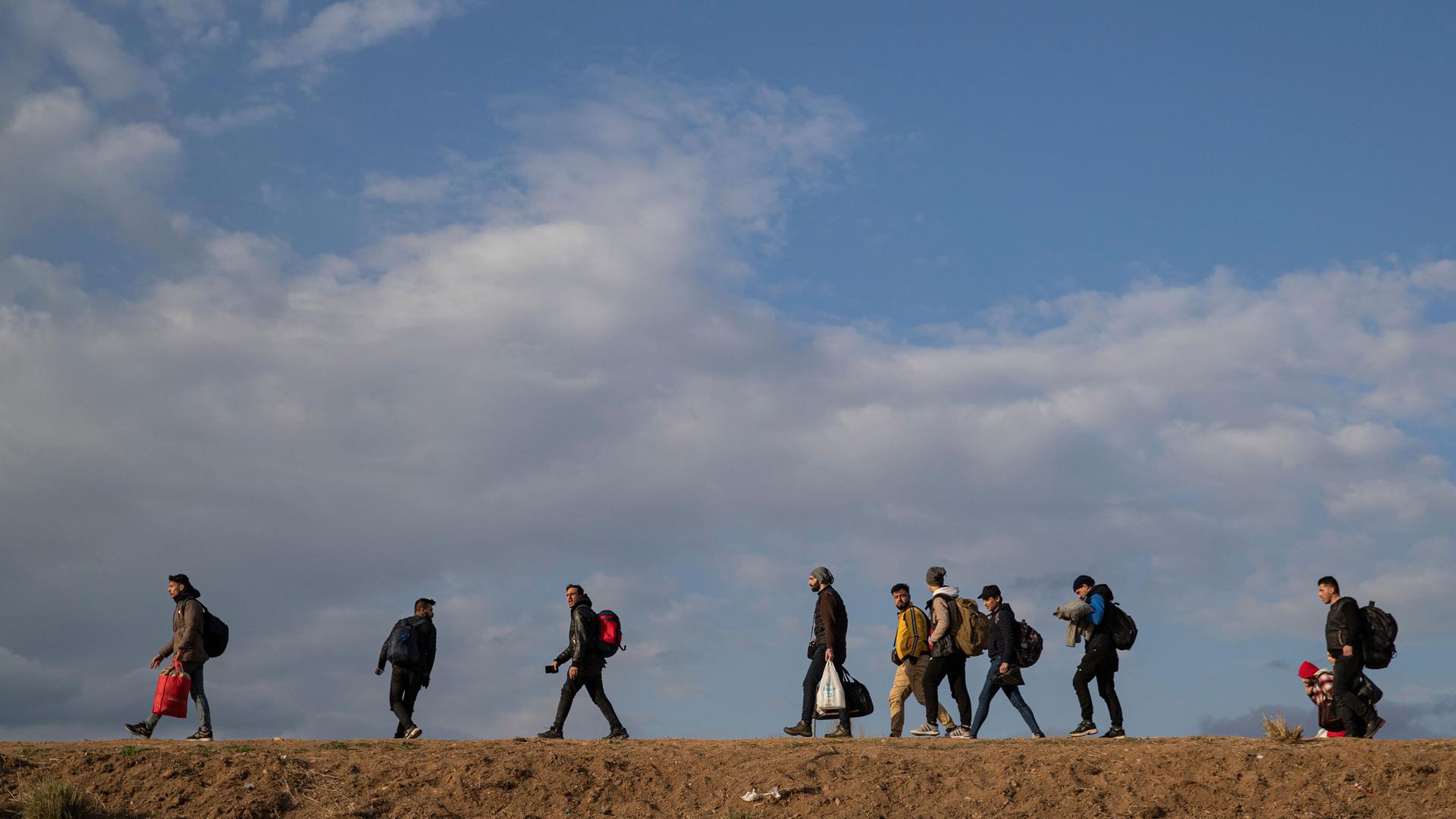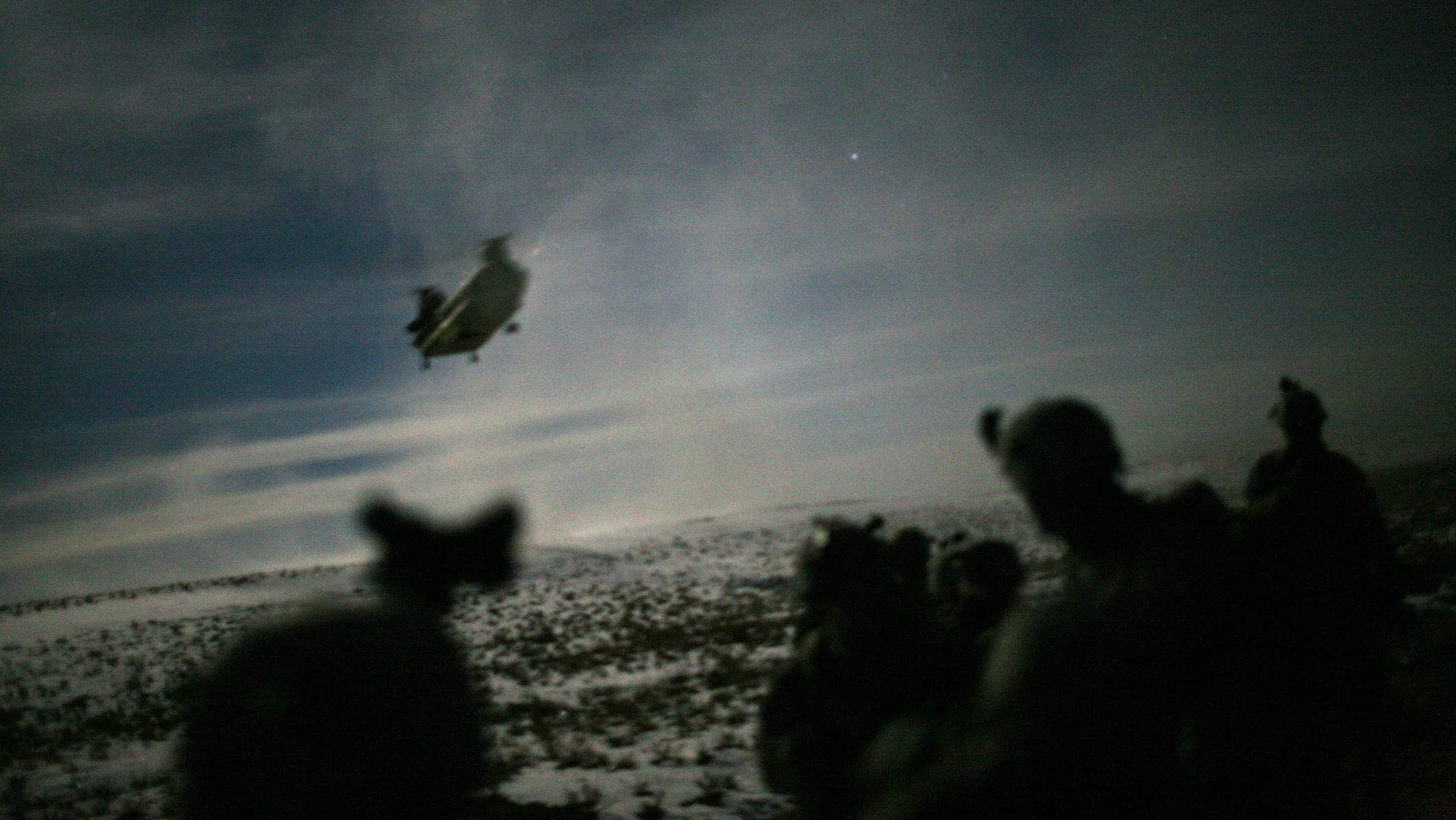ICC says US can be investigated for war crimes; Putin and Erdoğan hold talks over Syria; Governments, businesses take measures to halt spread of COVID-19
A Chinook helicopter lands to pick up US soldiers in Yahya Khel, Paktika province, Afghanistan.
Top of The World — our morning news round up written by editors at The World. Subscribe here.
The International Criminal Court in The Hague will allow an investigation into alleged war crimes and crimes against humanity in Afghanistan to go forward. The case implicates the Taliban, the US, and Afghan armed fighters. Afghanistan, where the alleged crimes took place, is a signatory to the international court — the US is not, and rejects the ICC’s jurisdiction.
The prosecutor, whose US visa was revoked last year after signaling she intended to pursue the case, has said information shows US forces had “committed acts of torture, cruel treatment, outrages upon personal dignity, rape and sexual violence” in Afghanistan.
The ICC’s decision to continue the investigation comes less than a week after the US and the Taliban signed a peace agreement to work torward the end of the 18-year war.
More: Human rights report accuses CIA-trained Afghan paramilitaries of atrocities
Analysis: A crucial moment for women’s rights in Afghanistan
Putin and Erdoğan head to talks over Syria
Russia’s President Vladimir Putin and Turkey’s President Recep Tayyip Erdoğan are meeting in Moscow to discuss a possible ceasefire in Syria. Last week more than 30 Turkish soldiers were killed, prompting a counteroffensive from Turkey against Syrian President Bashar al-Assad’s forces, which are backed by Russia. The increased fighting has worsened an already horrendous humanitiarian situtation, and Turkey has allowed refugees and asylum-seekers to make their way to Europe — a move that runs counter to a 2016 agreement with the EU.
And: EU will not give in to Erdoğan’s ‘blackmail,’ says Greek MEP
Governments, businesses take measures to halt spread of COVID-19
California has declared a state of emergency over COVID-19 and South Africa has announced its first case of the novel coronavirus. Iran is upping measures against the spread of the disease, including school closures and checkpoints between cities.
In North America, Starbucks has suspended the use of personal and “for here” cups to minimize the potential spread of germs. A recent analysis suggests that some coronaviruses can live on surfaces up to nine days, though the report did not include data from the novel virus that causes COVID-19.
And: US health system is showing why it’s not ready for a coronavirus pandemic
Super Tuesday voters abroad and at home
As far as polling places go, Mike’s Place is pretty hip. It’s an American-style sports bar that overlooks the beach in Tel Aviv, Israel. Budweiser, burgers and hot wings are all on the menu. But on Super Tuesday, people came for a slice of American democracy.
Democrats Abroad Israel ran an event at the bar where American citizens could cast ballots in the 2020 primary.
But in the US, some voters waited hours and hours to cast their ballots — a reminder of the barriers many Americans encounter trying to participate in US elections.
Women’s shelters in Mexico struggle to survive amid rise in femicides

At first glance, the 25-year-old woman pushing her son on the swings and cradling her baby looked like a typical mother in Mexico City. But instead of taking her children to the neighborhood playground, she watched over them in the yard of a shelter for women fleeing violence. That’s where they’d been living — or rather, hiding — for the past few days.
“I was always the one at fault, no matter what he did,” she said.
The “he” in question was her husband. She might have stayed with him had it not been for the murder of another woman, Ingrid Escamilla, exactly her age.
In Mexico, Escamilla’s killing — followed days later by the kidnapping, rape and murder of a 7-year-girl outside her school — has sparked outrage and calls for strikes to protest violence against women. The issue has led the news in Mexico for weeks.
On March 8, International Women’s Day, marches are expected to take place around the country. The following day, March 9, feminist organizations are organizing a “day without women” — urging women not to appear in public to protest gender-based violence.
Morning meme
The spread of the novel coronavirus has sparked some novel PSAs and more than 65 songs with “coronavirus” in the title.
But we’ve got to hand it to the creators of this #HandWashingDance from Vietnam.
In case you missed it
Listen: The far-reaching impact of COVID-19

School were cancelled In Italy, journalists and politicians suspect the government of a cover-up in Iran and in Kenya, and officials are trying to contain fake news. We have the latest on COVID-19 from some of the places affected. Also, a Greek member of the European parliament discusses the tense situation along the Greece-Turkey border where migrants have been flocking in an attempt to reach Europe. And, climate change is claiming another victim: ice wine — a sweet dessert wine grown in Germany where the grapes no longer freeze during the winter, preventing the vintners from making the wine.
Don’t forget to subscribe to The World’s Latest Edition podcast using your favorite podcast player: RadioPublic, Apple Podcasts, Stitcher, Soundcloud, RSS.
We want to hear your feedback so we can keep improving our website, theworld.org. Please fill out this quick survey and let us know your thoughts (your answers will be anonymous). Thanks for your time!
